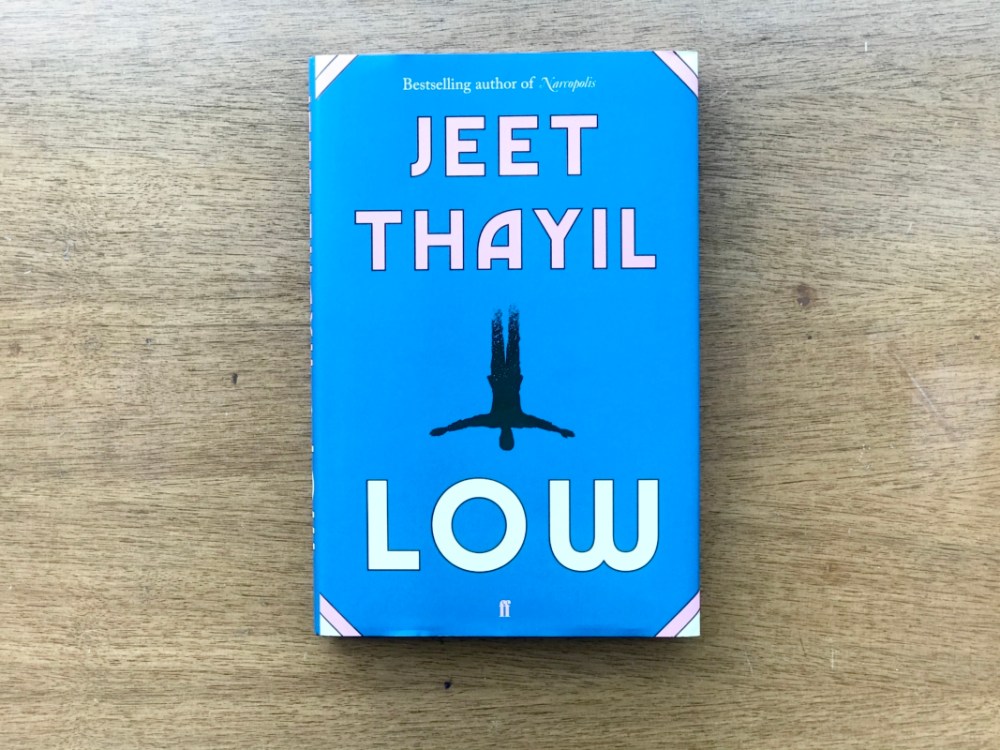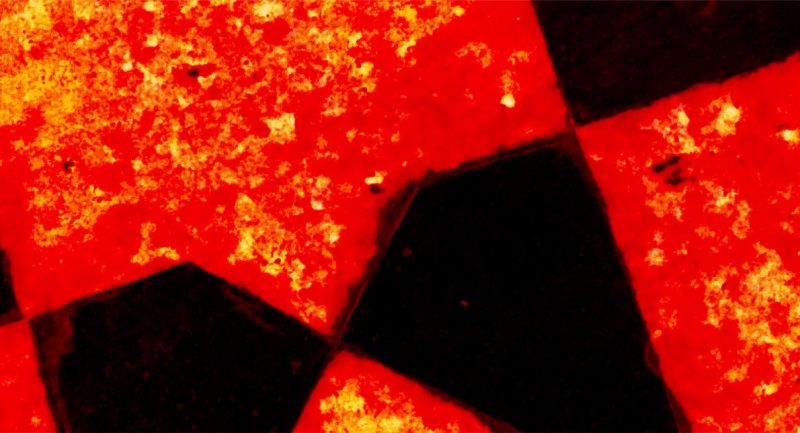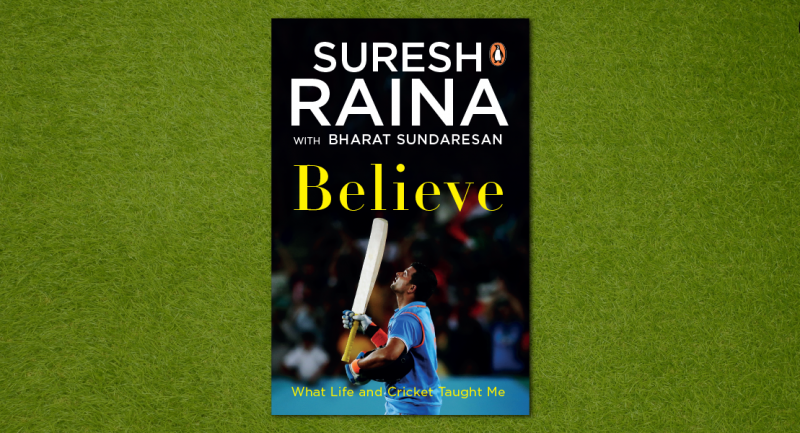
Following the death of his wife, Dominic Ullis escapes to Bombay in search of oblivion and a dangerous new drug, Meow Meow. So begins a glorious weekend of misadventure as he tours the teeming, kaleidoscopic city from its sleek eyries of high-capital to the piss-stained streets, encountering a cast with their own stories to tell, but none of whom Ullis – his faculties ever distorted – is quite sure he can trust. Heady, heartbroken and heartfelt, Low is a blazing joyride through the darklands of grief towards obliteration – and, perhaps, epiphany.
Read an excerpt from the book below:
The mysterious quality of in-flight air. The low whine of tinnitus, a charged anxious ringing that kept adjusting its volume. The sense of something about to happen, something decisive. Then the lights dimmed as the aircraft dropped through the clouds and prepared to land. It taxied and turned, taxied and stopped.
Payal sprang up again, grabbed her wheeled case from the overhead bin, and went to the front exit, resplendent in her sari. Ullis stayed where he was until the other passengers had left. Then he put half an Ambien under his tongue and took the white plastic box from the overhead bin and floated towards the lovely slum city.
He’d left Delhi on a whim, carrying only the box from the crematorium. If not for the box what would he do with his hands? He would wring them. Repeatedly. Aki was dead and he didn’t know what to do from one moment to the next. The vast abstraction of time reduced to this: stupefaction with the hands. For now it was okay. For now his hands were cradling the box that contained her ashes.
The events of the week had passed through him without resistance from the moment he came home to find Aki dead in the study.
He’d panicked and called her mother. Then he drove to her house, breathless and shouting in the suffocating car. Aki’s mother had come back with him to the apartment in Defence Colony and they’d taken his wife’s body to the hospital. A quartet of stone-faced orderlies had moved her from the emergency room to the morgue. All night the panic sat like a heavy bear on his chest. The bear stayed for many days and nights, until it gave way to exhaustion and blessed amnesia. His mind disengaged from his surroundings. He felt separated from his body, but only partially, as if he’d been insufficiently anaesthetised.
Later, the only thing he remembered clearly was the crematorium, the priests in their white dhotis and saffron forehead smears, their oily faces peering at him from clouds of smoke, the cold young eyes devoid of all earthly emotion except boredom. He’d been shaken by their indifference and dazed by all that was expected of him.
Her mother had dressed Aki in a spectacularly inappropriate multi-coloured silk sari, and she’d made Ullis don a black suit and white shirt. He’d added a pair of chocolate loafers for urgent private reasons and foregone a tie as a concession to the April heat. This was how husband and dead wife had arrived at the crematorium: dressed for a wedding, in clothes neither had worn in their life together.
The suit and sari had been unnecessary. There were no mourners, no witnesses other than a handful of crematorium employees and Ullis and his dry-eyed mother-in-law. She had organised the cremation in such haste that there had been no time to call those who had known Aki and loved her. There was no time for anything other than the observance of rituals, each more pointless than the next.
The bored priests had mouthed their inane mantras. They had sifted uncooked rice and read from ancient leather-bound tomes and stared with their oily eyes. They rang tiny brass bells in a sequence to which only they were privy. (The bells are an omen, and they ring more than once in this story.) When they demanded of him some minor role in the general pagan tumult, he had obliged with the acquiescence required of the husband of the bride. After all, this was what she had been made to resemble, a young bride in silks and flowers. Except that the marigolds were uniformly wilted. Were they leftovers from a previous funeral?
When the priests told him to push the button that would slide her into the electric furnace, he had worried that the absurd sari would burst into flame.
He’d taken a last look at her slight figure dwarfed by piles of flowers and sundry low-priced objects, her face obscured by the sari’s pallu, artfully obscured so no viewer would remark at the blood vessels that had burst on her cheeks and forehead and neck like scarlet-brown buds that would never bloom. “Kar do,” the priest had said. Obediently Ullis slid her in, and some time later his mother-in-law divided his wife’s ashes into two boxes: “One for you and one for me.”
From the crematorium, clutching the box and dressed in his mourning suit, he walked into the dust of an enclosed courtyard surrounded by dead trees and broken concrete columns. From there he walked into the dust of the street.
“Dominic,” his mother-in-law had said. “You will be all right.”
“No,” he said. Was she now his former mother-in-law?
“Of course you will,” she said. “You’ll be just fine.”
“Okay.”
“Shall I ask Jeevan to drop you home?”
“No thank you,” he said. “I’ll take a taxi.”
“Arré, why? I have car and driver. He can drop.”
“I’ll take a cab. But thanks.”
As soon as he took a seat in the back of the battered white Honda that smelled of garam masala and hand sanitiser, Ullis decided not to return to the empty apartment in Defence Colony where each room reminded him of his dead wife and his abject failure as a husband and a man.
What was the point of going home? It was the last place he wished to go. No, he could do better. He’d travel to a city by the sea. After all, was he not carrying his wife’s ashes and did they not need to be immersed?
“Can you take me to the airport?”
The driver was young and easily shocked. He seemed unreasonably upset by the change of plans.
“Sir, I cannot,” he said.
“But why not?”
“First, you must change destination on phone.”
Ullis opened the app. He deleted “Defence Colony” from the drop location and typed in ‘Delhi Indira Gandhi International Airport’.
In half an hour he was at a reservation desk where he bought himself a ticket to the city he knew best, where oblivion was purchased cheaply and without consequence.
Low is a blazing joyride through the darklands of grief towards obliteration – and, perhaps, epiphany. The book is available now!









